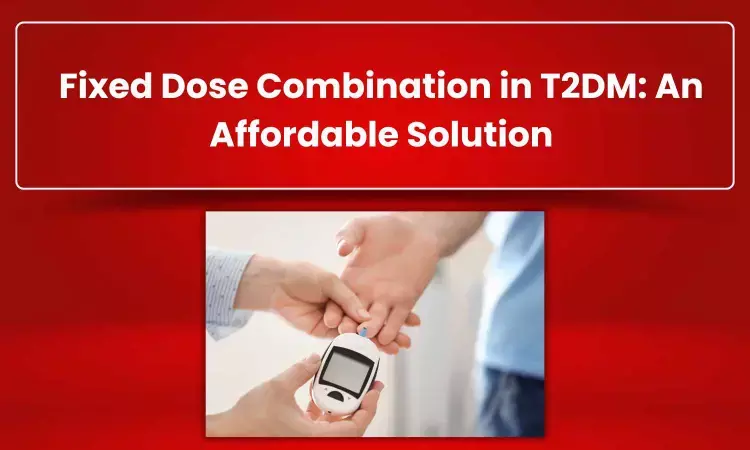- Home
- Medical news & Guidelines
- Anesthesiology
- Cardiology and CTVS
- Critical Care
- Dentistry
- Dermatology
- Diabetes and Endocrinology
- ENT
- Gastroenterology
- Medicine
- Nephrology
- Neurology
- Obstretics-Gynaecology
- Oncology
- Ophthalmology
- Orthopaedics
- Pediatrics-Neonatology
- Psychiatry
- Pulmonology
- Radiology
- Surgery
- Urology
- Laboratory Medicine
- Diet
- Nursing
- Paramedical
- Physiotherapy
- Health news
- Fact Check
- Bone Health Fact Check
- Brain Health Fact Check
- Cancer Related Fact Check
- Child Care Fact Check
- Dental and oral health fact check
- Diabetes and metabolic health fact check
- Diet and Nutrition Fact Check
- Eye and ENT Care Fact Check
- Fitness fact check
- Gut health fact check
- Heart health fact check
- Kidney health fact check
- Medical education fact check
- Men's health fact check
- Respiratory fact check
- Skin and hair care fact check
- Vaccine and Immunization fact check
- Women's health fact check
- AYUSH
- State News
- Andaman and Nicobar Islands
- Andhra Pradesh
- Arunachal Pradesh
- Assam
- Bihar
- Chandigarh
- Chattisgarh
- Dadra and Nagar Haveli
- Daman and Diu
- Delhi
- Goa
- Gujarat
- Haryana
- Himachal Pradesh
- Jammu & Kashmir
- Jharkhand
- Karnataka
- Kerala
- Ladakh
- Lakshadweep
- Madhya Pradesh
- Maharashtra
- Manipur
- Meghalaya
- Mizoram
- Nagaland
- Odisha
- Puducherry
- Punjab
- Rajasthan
- Sikkim
- Tamil Nadu
- Telangana
- Tripura
- Uttar Pradesh
- Uttrakhand
- West Bengal
- Medical Education
- Industry
Glipizide-Metformin, Glimepiride-Metformin-Pioglitazone FDCs Reduce Medication Costs in Indian T2DM: Study

Affordable combination medicines, such as glipizide + metformin and glimepiride + metformin + pioglitazone offer considerable advantages and can reduce medication costs by up to 20 times, a recent Indian review has reported. These therapies also improve patient adherence for Indians with type 2 diabetes.
This latest review, authored by Indian endocrinologists and diabetologists, was published in the latest issue of Cureus, Part of Springer Nature.
The main aim of this review was to highlight the importance of medication adherence in effective glycemic control and in reducing the morbidity and mortality associated with diabetes complications.
According to the authors, suboptimal glycemic management increases diabetes-related morbidity and treatment expenses by 2.3 to 3.3 times. Diabetes care costs the average Indian home between INR 11,500/- and INR 49,000/- a year, which has been observed to consume 5% to 25% or more of household income in resource-challenged sections of the society. This suggests that those with lower incomes pay a greater percentage of their income for diabetes care; hence, affordable solutions are highly needed to support this deserving T2DM population
Glipizide + Metformin Reduce Treatment Cost Up to 20 times: The researchers noted that the price for Glipizide + Metformin based on cost analysis is INR 2/- per tablet. The annual cost, assuming twice daily administration, is INR 1,460/-. This is estimated approximately five to twenty times lower than the projected yearly cost of prescription drug expenses. The accessibility of Glipizide + metformin to the deserving, resource-challenged T2DM population, in need of treatment is improved by its accessibility and cost in India. Glipizide + metformin therapy is well-tolerated, as evidenced by improvement in the glycemic index without weight gain and lower incidence of hypoglycemia.
Glimepiride + Metformin + Pioglitazone combination Medication Costs Up to 16 times: The cost analysis depicted that the price per tablet for a triple dose of glimepiride, metformin, and pioglitazone is INR 6.52/-, which is advised to be taken once daily. The annual cost with these dosage recommendations turns out to be INR 2,380/- This combination is expected to be 4–16 times less expensive annually than the cost of diabetes medications. A triple dose combination of Glimepiride + metformin + pioglitazone has demonstrated effective glycemic control, indicated by a decrease of HbA1c levels by 1.3%.
These readily available and reasonably priced medication combinations in India have the potential to enhance patient adherence, lower the risk of complications, and enhance the general quality of life for people with type 2 diabetes.
Combination Therapy Improves Glycemic Control in T2DM: Landmark trials such as UKPDS, have shown that the percentage of T2DM patients on monotherapy who have optimum glycated haemoglobin A1c (HbA1c) levels (<7%) has been dropping year by year, with failure rates reaching 45%. It is anticipated that the wide range of T2DM phenotypes in India contributes to the high treatment failure rates. While multidrug therapy has been associated with poor compliance, combination therapies have emerged as the preferred option by clinicians
Various scientific authorities, including the Research Society for the Study of Diabetes in India (RSSDI), recommend that patients with uncontrolled type 2 diabetes who have not responded to any conventional treatment for more than three months could consider a combination therapy that includes metformin and additional oral antidiabetic medications (OADs).
Hence, combination therapy offering multiple mechanisms has emerged as an effective solution for glycemic management and aided in improving medication adherence and reducing the risk of adverse events.
The authors conclude, emphasizing that efficient T2DM management relies on cost-effective interventions to improve patient adherence in India.
Reference: Shaikh S, Vaidya V, Gupta A, et al. (May 07, 2024) A Review on Affordable Combinations in Type 2 Diabetes Care: Exploring the Cost-Effective Potential of Glipizide + Metformin and Glimepiride + Metformin + Pioglitazone. Cureus 16(5): e59850. doi:10.7759/cureus.59850
Dr Kamal Kant Kohli-MBBS, DTCD- a chest specialist with more than 30 years of practice and a flair for writing clinical articles, Dr Kamal Kant Kohli joined Medical Dialogues as a Chief Editor of Medical News. Besides writing articles, as an editor, he proofreads and verifies all the medical content published on Medical Dialogues including those coming from journals, studies,medical conferences,guidelines etc. Email: drkohli@medicaldialogues.in. Contact no. 011-43720751


